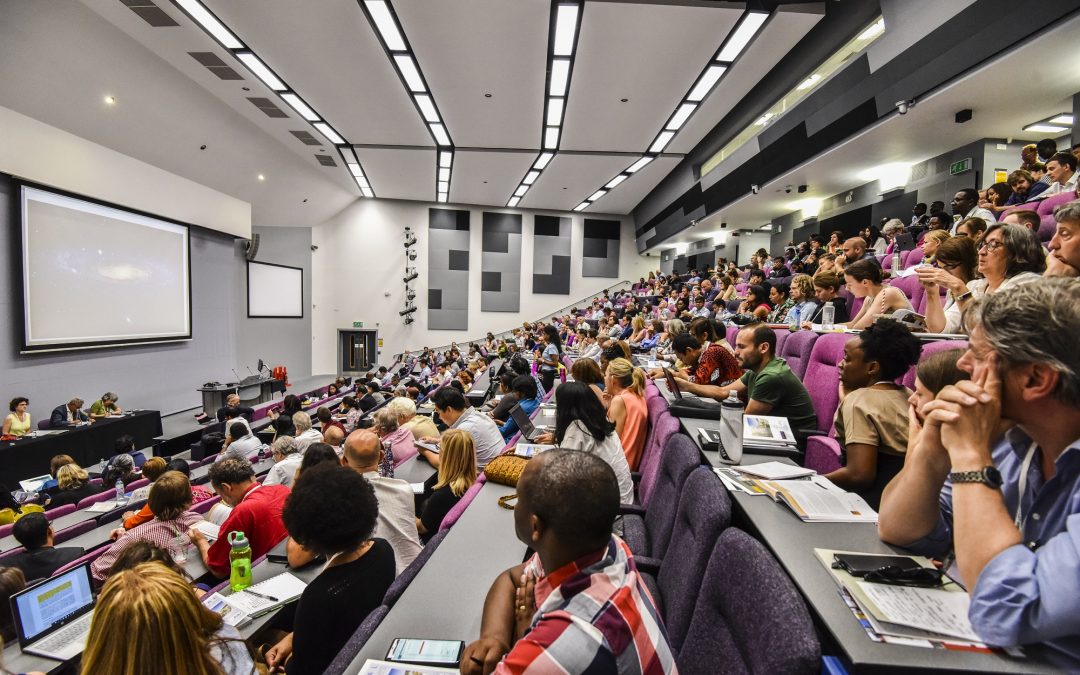
Call for papers for Effective States and Inclusive Development conference on ‘rethinking the politics of development’
We are delighted to announce a flagship international conference convened by Effective States and Inclusive Development research centre, Global Development Institute, The University of Manchester.
Confirmed plenary speakers include world leading experts Anne Marie Goetz (New York), Merilee Grindle (Harvard), Lant Pritchett (Harvard), James Robinson (Chicago), Prerna Singh (Brown) and E. Gyimah-Boadi (Afrobarometer, Ghana).
Pratap Mehta (Ashoka), Dan Slater (Michigan ), are to be confirmed.
From Politics to Power? Rethinking the politics of development 9-11 September 2019, Manchester, UK
Politics was finally brought into the mainstream of international development around a decade ago. However, whilst most development academics and agencies accept that politics plays a central role in shaping development in the Global South, the incorporation of politics within development theory and practice remains partial and subject to backsliding. This international conference will take stock of what work on the politics of development has achieved to date, identify further opportunities for incorporating the full range of scholarship on politics and development, and set out future research agendas for the field.
This flagship conference will showcase the findings of the Effective States and Inclusive Development research centre (ESID), which has been researching the politics of state capacity and elite commitment to development since 2011. ESID findings will be presented and debated alongside the much broader range of research into the politics of development.

Migration, fake news and reality
Gabriele Restelli, PhD Researcher, Global Development Institute
The United Nations recently approved the Global Compact for Migration. This has come shortly after the endorsement of the other compact, for refugees. These agreements have sparked tensions, protests and even a government crisis in Belgium – especially within right wing parties and movements who allege that the controversial nature of these compacts impedes national sovereignty and adversely impacts security.
Although it is hard to understand what is controversial about a non-binding pact to foster international cooperation, it is fair to wonder why the world needs a global compact on migration to begin with. It has often been argued that unprecedented levels of mobility and migration require unprecedented intergovernmental efforts at tackling such a globally relevant phenomenon.
Indeed, in absolute terms, more individuals than ever before are on the move; but that’s simply because the world population has now increased to seven billion. Global migration data show no evidence of discontinuity in overall international migration trends, that is: the total number of people living outside their country of birth (migrant stock) has remained relatively stable as a percentage of the world’s population since 1960, ranging from 3.1% to 3.3% in 2015. Similarly, only 0.75% of the world’s population emigrated in 2014 (migrant flow) – just like in 1995. read more…
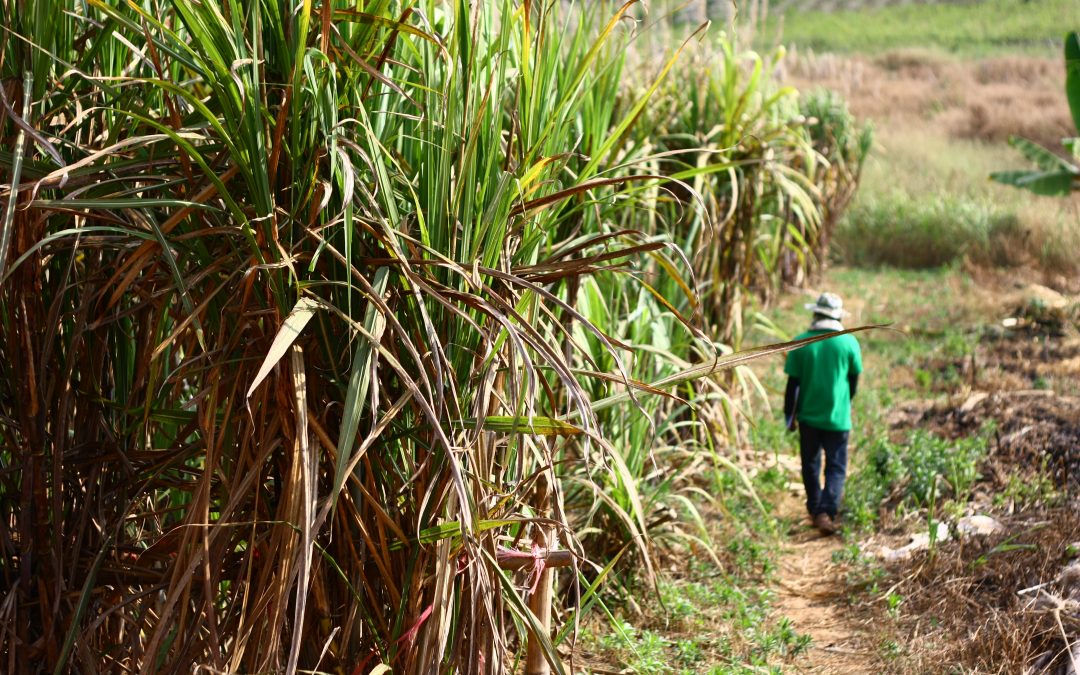
How academia is contributing to the SDGs
The goals addressing the challenges in the sustainable development goals are all intimately linked; progress towards one goal depends on, and affects, other goals. And as economies and societies are globally interconnected, countries will need to work together to achieve progress. GDI’s multidisciplinary research allows solutions to come from social scientists, geographers, politicians, economists and those working in business and engineering to address aspects of the SDGs. It’s an approach being documented in a new collection of special issue journals: The SDG Perspectives Project – which aims to build an environment for collaboration, where experts from all over the world can engage with the SDGs in an interdisciplinary way.
GDI researcher Johan Oldekop was on the editorial board of the first of three special issues which will focus on environmental sustainability, world development and health policy. Each special issue will look at the ways in which the SDGs are influencing academic and research debates and vice versa. read more…
Reflections on our 60th year
As 2018 draws to a close, seismic shifts are taking place globally, nationally and locally. While headline poverty rates continue to fall, will growing inequality choke off the benefits of growth? In increasingly urbanised societies, are new forms of disadvantage becoming manifest and how can we secure positive change for all? How can organisation be effectively managed in turbulent times? And does the increasingly urgent threat of climate change mean we need to develop a radically different vision of development? These are just some of the urgent questions we have been grappling with this year but in effect for the last 60 years.

It’s not all been bad!
With so much news of political, social and environmental doom it’s easy to forget that good things have also been happening in the world. We asked our researchers to tell us some nuggets of good that took place in 2018:

Working governance for working land
In their Review “Landscapes that work for biodiversity and people” (19 October, p. eaau6020), C. Kremen and A. M. Merenlender discuss techniques that can preserve both ecosystem services and biodiversity in landscapes that have been modified by humans. They suggest that working lands can form useful peripheries to core protected areas. However, if appropriately managed, working lands can do more than just provide appropriate land use around strictly protected areas. Some working lands and less-strict forms of protection afford comparable conservation outcomes to state-controlled protected areas.
Whether as core or periphery, the critical challenge is to understand what governance works best to conserve the biodiversity of private, communal, and state-managed resources (3, 4). On working lands, the potential for biodiversity- rich management depends on who owns and controls land or water use, on what terms, and with what objectives. Rights to resources, the rules controlling their use, and the arrangements by which these are forged, enforced, and revised are critical to conservation success. Even as there are calls for improved governance, knowledge about the relative effectiveness of different governance arrangements, and the political and social coalitions necessary to support them, remains in its infancy.
Rural people play a vital role in the protection of biodiversity in most landscapes, both within and outside protected areas. The conservation challenge lies in identifying what specific forms of governance arrangements will work in particular locations and with which rural peoples. Models must vary; we should design governance arrangements for different contexts. Only solutions tailored to the particularities of each region can win the enduring social and political support needed for maintaining biodiversity in the long term.
- Dan Brockington, Sheffield Institute for International Development
- William M. Adams, Department of Geography, University of Cambridge
- Bina Agarwal, Global Development Institute, The University of Manchester
- Arun Agrawal, School for Environment and Sustainability, University of Michigan
- Bram Büscher, Sociology of Development and Change, Wageningen University
- Ashwini Chhatre, Department of Economics and Public Policy, Indian School of Business
- Rosaleen Duffy, Department of Economics and Public Policy, Indian School of Business, Hyderabad
- Robert Fletcher, Department of Politics, University of Sheffield
- Johan A. Oldekop, Global Development Institute, The University of Manchester
This letter first appeared in Science on 14 December 2018.
Note: This article gives the views of the author/academic featured and does not represent the views of the Global Development Institute as a whole
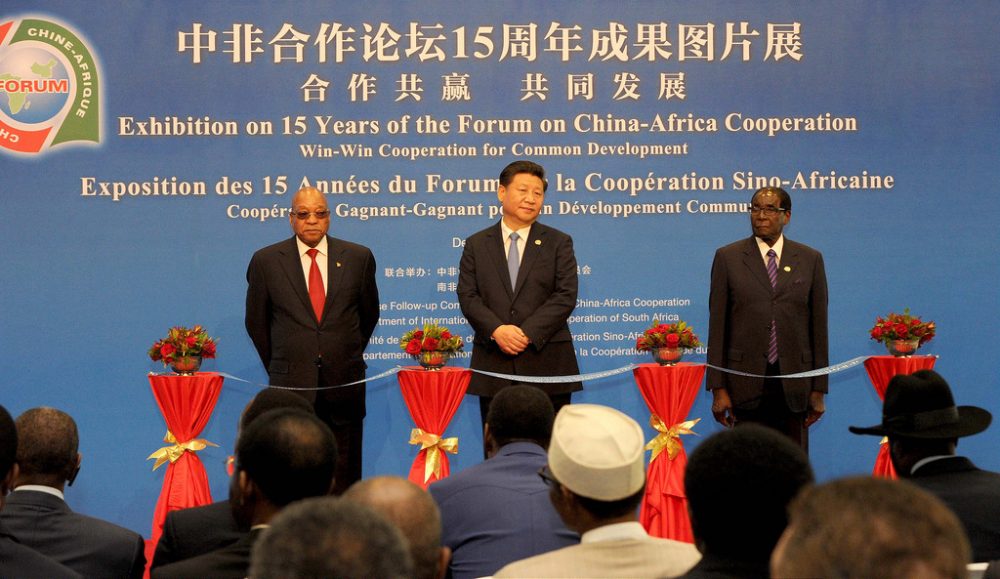
Next steps for China’s new development agency
Wei Liu and Heiner Janus
China’s development agency released a new draft of “Measures for the Administration of Foreign Aid” on 13 November, asking for comments from the public. The measures clarify and guide the practices of all Chinese institutions engaged in foreign aid. Although these are internal management guidelines for the Chinese bureaucracy, they have far reaching global consequences. According to latest estimates, China has steadily increased foreign aid over recent years and in 2016 was the seventh largest donor globally.
The reform of the Chinese aid system reached a peak in April 2018, when China established a new International Development Cooperation Agency (CIDCA) at the vice-ministry level, elevating the political importance of development cooperation. It has been unclear, however, how the agency adds value to the complex landscape of over 30 Chinese institutions dealing with development cooperation. In particular, it is uncertain whether CIDCA can assert itself vis-à-vis other powerful actors like the ministries of commerce or foreign affairs.
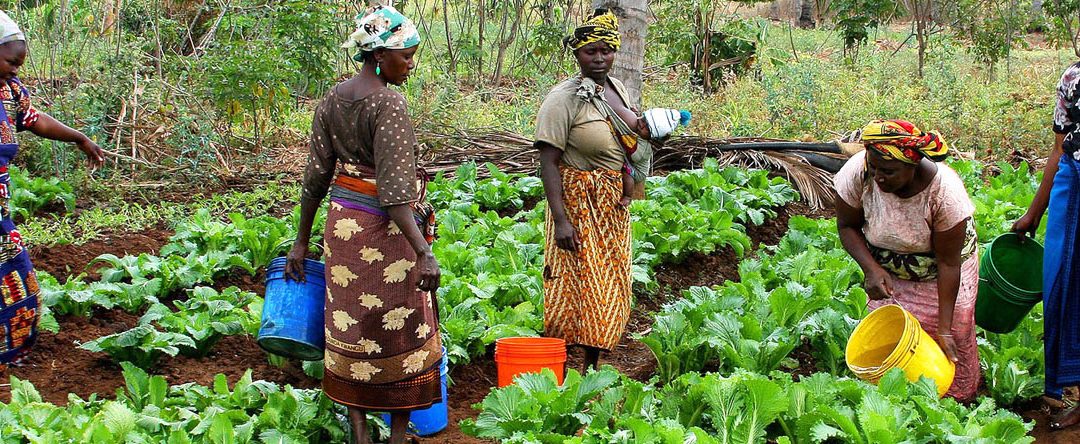
Short Course: African irrigation development: planning for a productive future
4-15 March 2019, Arusha Tanzania with WISE – Futures and The University of Manchester
Course description:
Across the African continent, increasing climatic variability and the uneven distribution and availability of both surface and subsurface water resources calls for further investment in water management in order to increase agricultural production. Recognising this, the African Union’s Comprehensive African Agriculture Development Programme has promoted a review of irrigation policy by national governments which in turn gave rise to ambitious new national policies for irrigation investment. Currently, these national policies are being implemented across the continent, yet many challenges remain in reaching the stated objectives. Looking beyond public irrigation investments to include private initiatives, this course gives professionals the tools and insights to engage productively with different types of irrigation development in Africa, ranging from agribusinesses, public irrigation schemes and farmers’ irrigation initiatives.
Through linked field visits, lectures and exercises, course participants explore the challenges and possible solutions for different types of irrigation. Seeing irrigation as part of a broader agricultural system, the 11-day course does not exclusively cover irrigation design topics, but also provides the opportunity to discuss issues concerning irrigation mapping, the gendered aspects of irrigation development, value chains in irrigated agriculture, irrigation system management, water governance, and monitoring and evaluation. By applying the general lessons and insights from the lectures directly through Tanzanian cases of irrigation development during group work, the course strengthens the capacity of participants to integrate contemporary issues into irrigation planning and management. At the end of the course, each participant will receive a course certificate.
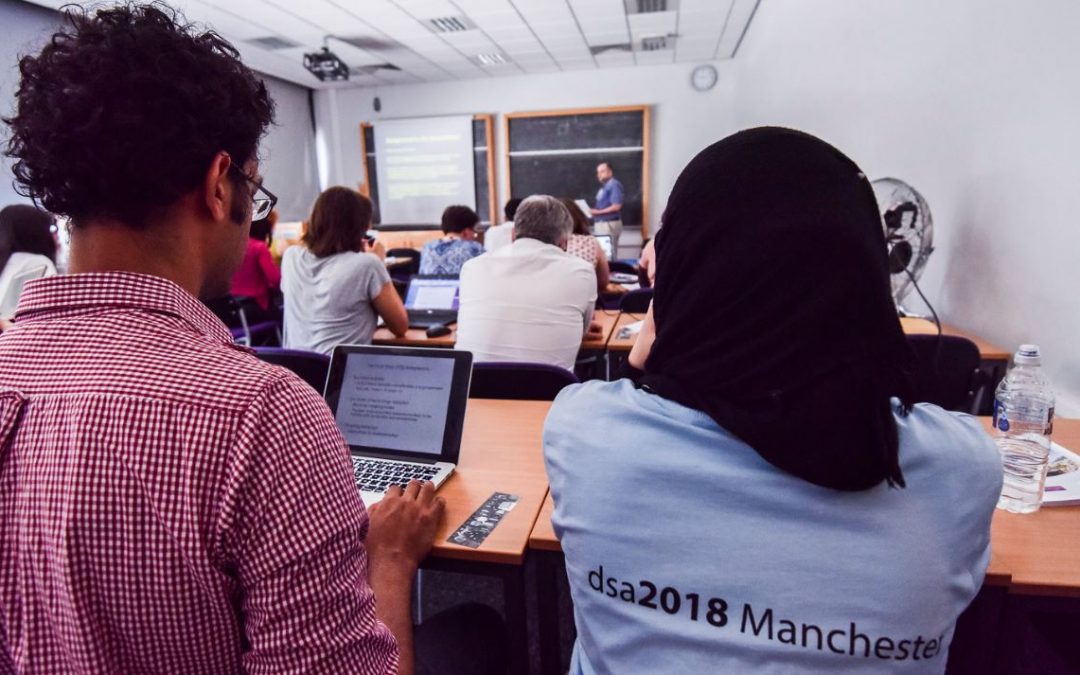
Call for papers: opening up development at the DSA
The Call for Papers is now open for DSA2019: Opening up Development, the annual conference of the Development Studies Association taking place at the Open University, Milton Keynes, 19-21st June. The conference theme draws attention to shifts in the global political economy; new forms of development intervention and activism; and the call to ‘de-colonise’ the teaching and learning of development studies. The DSA website hosts the lists of the panels included in this year’s conference. Panels hosted by researchers from the GDI include:
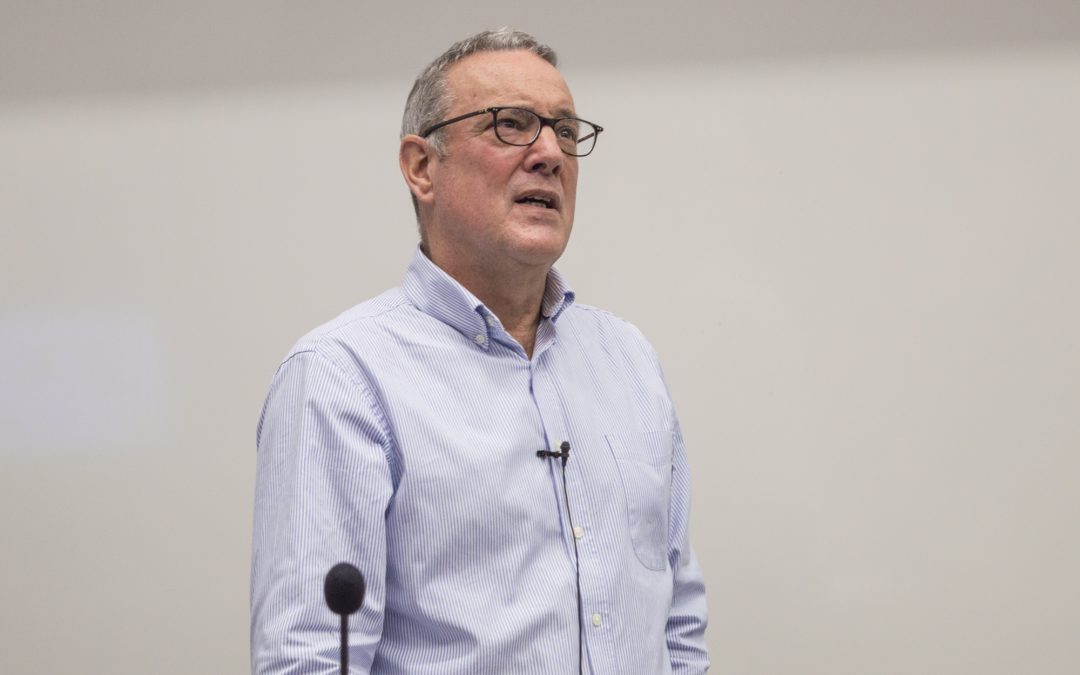
GDI Lecture: How can irrigation contribute to agricultural growth in Africa with Phil Woodhouse
Professor Phil Woodhouse gave a lecture entitled; ‘How can irrigation contribute to agricultural growth in Africa?’. The lecture was based on Prof Woodhouse’s recent research project Studying African Farmer Led Irrigation (SAFI).
Listen or watch to the lecture in full below. read more…
